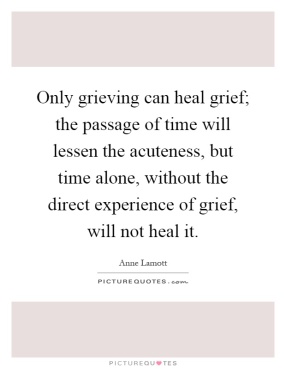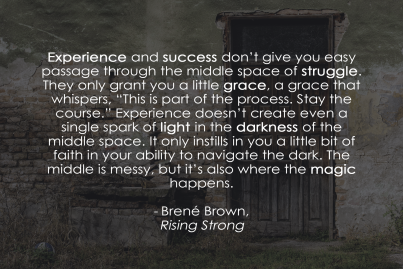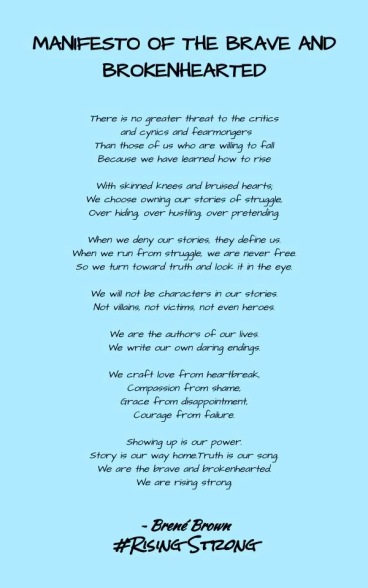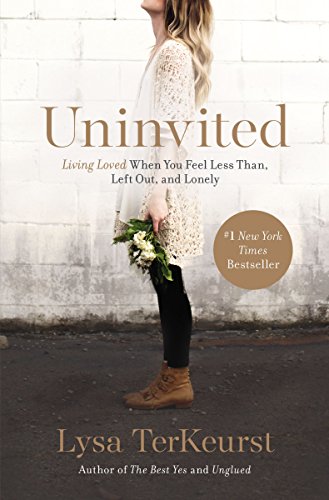 “How do you feel about that?”, Ruth, my grief counselor asked.
“How do you feel about that?”, Ruth, my grief counselor asked.
Tears filled my eyes and choked my throat as I desperately tried to prevent them from falling, to prevent a sob from escaping, while my mind grappled for words to define my feelings.
For such a wordy person I find it ironic how completely inadequate I find words to be.
“It makes me sad, incredibly sad”, I choked out.
Sad? What kind of word is that? It’s so shallow, so tame, so far from describing the intense wave of emotion that swells and rolls over my heart, that sucks the air from my lungs, pinches every muscle in my neck and shoulders, and shoots quaking tremors through my body as I struggle to maintain control.
I can’t speak without control.
I realized after I left my counselor’s office that I rarely cry. In the two and a half plus years since Bethany and Katie died, since Gracen’s health was irrevocably changed, I’ve not shed the ocean of tears I would have imagined had someone told me how things would unfold for our family that fateful day.
My therapy sessions are pretty much the only place I cry.
My counselors are the only people who ask me how I feel about anything. I’m not sure if everyone else assumes they know how I feel (based upon how they think they’d feel in my place) or if they are too afraid of the answer to ask.
And conversationally people in general use deflective phrases when we describe our feelings. “I feel like . . .” or “I feel as if . . .” are frequent precursors to deflective phrases.
“I feel as if I’ve lost everything.”
“I feel like hitting something.”
Where are the adjectives that describe the actual feelings in those sentences?
That’s how I talk to people. Those phrases distance me from the descriptive words for emotions we are often told are inappropriate or just plain wrong. They allow me to talk about facts instead of feelings. I can expound upon the events that occurred, the facts, all day long without shedding a tear. But don’t expect me to directly address my feelings because I can’t do that without breaking down.
Society seems to think it’s wrong to say,
“I feel betrayed,
abandoned,
unloved,
unworthy,
inadequate,
enraged,
sad,
despondent,
discouraged,
defeated,
diminished,
detached,
numb”
and so on.
Every one of those words deemed inappropriate and negative are really just replacements for this simple two word sentence:
“I hurt.”
We like to toss out the phrase, “No pain, no gain.” in relation to exercise, but that short sentence is equally applicable to emotional healing. It’s helpful to be able to put your feelings into words because we have an inherent desire to be understood and for our feelings to be validated. But understanding and validation are not enough. We have to experience our emotional pain in order to vent it, process it and find our way past it.

We don’t heal—we aren’t restored to full emotional health—until we work our way through our painful emotions. We can’t ignore them, hide from them, bury them, rationalize them, or intellectualize them away. Those are all avoidance measures. Our hearts must heave and keen out our grief in order to heal.
Counting it all joy is fine, as long as we don’t expect the grieving to skip the passage from the onset of the trial to the spiritual maturity and inner peace developed as a believer’s faith is tested and proven. Read the verses below and it’s pretty clear that the benefits of having one’s faith tested requires passage through a process:
“Consider it nothing but joy, my brothers and sisters, whenever you fall into various trials. Be assured that the testing of your faith [through experience] produces endurance [leading to spiritual maturity, and inner peace]. And let endurance have its perfect result and do a thorough work, so that you may be perfect and completely developed [in your faith], lacking in nothing.” ~ James 1:2-4 (Amplified Bible)
I told Ruth recently, “You know how everyone wants you to find the silver lining around every dark cloud? Well I can’t even find the outside borders of the cloud. Have you ever looked at a dark and stormy sky and the clouds just stretch out before you covering every bit of sky your eye can see? You can make a 360 degree turn and still all you see are dark clouds stretching across the sky. That’s what it’s like. Looking at my losses and the prognosis for Gracen’s disease is like looking up and seeing a single sheet of dark, stormy, roiling clouds. I can’t get far enough away to see where the storm clouds begin and end. How am I suppose to draw a silver lining around the negative circumstances of my life when I can’t find the borders?”

Regardless, the ability to find the positive in adverse situations doesn’t make difficult circumstances easier to endure or work through. Brené Brown, in her book Rising Strong said,
“Experience and success don’t give you easy passage through the middle space of struggle. They only grant you a little grace, a grace that whispers, “This is part of the process. Stay the course.” Experience doesn’t create even a single spark of light in the darkness of the middle space. It only instills in you a little bit of faith in your ability to navigate the dark. The middle is messy, but it’s also where the magic happens.”
Apparently, as a result of my most recent trials, I have become extremely adept at the art of numbing hurt. Distraction and avoidance maneuvers are ways people numb pain. To top off Brené Brown’s list of emotional numbing behaviors which include alcohol, drugs, food, sex, shopping, work and religion among others she adds:
“And just so we don’t miss it in this long list of all the ways we can numb ourselves, there’s always staying busy: living so hard and fast that the truths of our lives can’t catch up with us. We fill every ounce of white space with something so there’s no room or time for emotion to make itself known.”
I find it interesting that the practice of religion and staying busy are included in Brown’s list of numbing behaviors, because those are two things that I’m constantly encouraged to practice. Although to be fair, I do believe she is referring to over doing any of these things individually, or completely filling your days with a combination of these coping behaviors.
As she said above, “We fill every ounce of white space with something so there’s no room or time for emotion to make itself known.” This is what I do. I read. I sleep. I think. I even write about emotions in order to avoid actually experiencing them. This is what the late great C.S. Lewis said in A Grief Observed:
“Feelings, and feelings, and feelings. Let me try thinking instead. . . Do I hope that if feeling disguises itself as thought I shall feel less? . . . Aren’t all these notes the senseless writings of a man who won’t accept the fact that there is nothing we can do with suffering except to suffer it?”
Maybe he [Lewis] tried to think and write his way around experiencing the emotions of grief too. Maybe his work, A Grief Observed, is the physical manifestation of his own efforts at numbing the pain.

I’ve been struggling for two and a half years to find a way to cope with the pain of death and degenerative disease. But maybe I’m doing little more than intellectualizing my grief as opposed to experiencing or feeling it. Maybe I’m deceiving myself by thinking I’m confronting my feelings and circumstances in relation to God’s Word when really I’m just making myself a character in my own story as opposed to writing my story (see the manifesto on your left). Maybe I’m not “crafting love from heartbreak, compassion from shame, grace from disappointment [or] courage from failure.” Maybe I’m just chasing my tail instead of becoming one of the brave and brokenhearted and rising strong.
How does that make you feel?
Confused,
Scared,
Sad,
Ashamed,
Weak,
Weary,
And very, very broken.
Lost.
I’m still lost.
All those emotions, and many more, are shoved down and shuttled aside as I continue to struggle to find the courage to process my emotions. I need to find a way to experience my feelings or healing will continue to elude me.
If anyone has any sage advice to help me through my magical mystery tour of life, please share it. Otherwise, I think the book of Jude contains the answer in verses 20 & 21:
” . . . you, dear friends, must build each other up in your most holy faith, pray in the power of the Holy Spirit, and await the mercy of our Lord Jesus Christ, who will bring you eternal life. In this way, you will keep yourselves safe in God’s love.”
And Jude tells us how we go about building each other up in verses 22 & 23:
“And you must show mercy to those whose faith is wavering. Rescue others by snatching them from the flames of judgment. Show mercy to still others, but do so with great caution, hating the sins that contaminate their lives.”

 This morning I realized that I’ve been on a hunger strike of sorts. It wasn’t a conscious decision on my part; well not entirely anyway. But I’ve spent a great deal of time trying to reconcile my circumstances, and my feelings about them, with what I know and believe to be true about the God who loves me. The thing I haven’t done is regularly sit down in His presence and let Him speak to me.
This morning I realized that I’ve been on a hunger strike of sorts. It wasn’t a conscious decision on my part; well not entirely anyway. But I’ve spent a great deal of time trying to reconcile my circumstances, and my feelings about them, with what I know and believe to be true about the God who loves me. The thing I haven’t done is regularly sit down in His presence and let Him speak to me.
 If you search the Internet for articles about trusting God with your children you will find the majority of the articles revolve around things that, while not insignificant, are also not matters of life and death. A quote like Lysa’s can sound painfully trite, if not impossible, to parents of sick or special needs children; especially when death is dogging their every step, regardless of the truth of her words.
If you search the Internet for articles about trusting God with your children you will find the majority of the articles revolve around things that, while not insignificant, are also not matters of life and death. A quote like Lysa’s can sound painfully trite, if not impossible, to parents of sick or special needs children; especially when death is dogging their every step, regardless of the truth of her words.

 And deliverance from my fears is beyond the scope of my faith . . . at this time.
And deliverance from my fears is beyond the scope of my faith . . . at this time. I recognize that my unintended hunger strike needs to come to an end. I’ve devoured every last bit of spiritual knowledge stored up in my heart and mind. I need a regular diet of the meat of the word in order to renew my mind and transform my heart. I’m sure I’ll miss meals on occasion, but I’m making a conscious effort to be regularly fed.
I recognize that my unintended hunger strike needs to come to an end. I’ve devoured every last bit of spiritual knowledge stored up in my heart and mind. I need a regular diet of the meat of the word in order to renew my mind and transform my heart. I’m sure I’ll miss meals on occasion, but I’m making a conscious effort to be regularly fed.



 Is that why my longing for my eternal home is met with admonitions that I must have hope? That it is wrong for me to desire the rapture in order to escape these earthly sorrows?
Is that why my longing for my eternal home is met with admonitions that I must have hope? That it is wrong for me to desire the rapture in order to escape these earthly sorrows? Maybe that’s where the Holy Spirit steps in and performs a supernatural work in our hearts that enables us to receive God’s all sufficient grace instead of rejecting it in our agony . . . instead of taking action outside of the will of God due to complete despair and utter desperation.
Maybe that’s where the Holy Spirit steps in and performs a supernatural work in our hearts that enables us to receive God’s all sufficient grace instead of rejecting it in our agony . . . instead of taking action outside of the will of God due to complete despair and utter desperation. I had a biopsy Tuesday. I was a bit surprised when the doctor told me that I had handled the news that the biopsy was necessary in an appropriate manner – in other words – he was glad I didn’t freak out. This is the fourth time I’ve had to have follow-up appointments when the initial tests revealed unexpected results ATA (after the accident).
I had a biopsy Tuesday. I was a bit surprised when the doctor told me that I had handled the news that the biopsy was necessary in an appropriate manner – in other words – he was glad I didn’t freak out. This is the fourth time I’ve had to have follow-up appointments when the initial tests revealed unexpected results ATA (after the accident). It was a period of time in which feeling good (in spite of the fact that I was having a biopsy and all that implies) didn’t feel bad – didn’t feel as if laughing or smiling or enjoying simple conversation diminished the inherent value of my daughters. There was no guilt – no shame – and believe me I found many a reason to feel both of those things!
It was a period of time in which feeling good (in spite of the fact that I was having a biopsy and all that implies) didn’t feel bad – didn’t feel as if laughing or smiling or enjoying simple conversation diminished the inherent value of my daughters. There was no guilt – no shame – and believe me I found many a reason to feel both of those things! Those thirty minutes were worth waking up Tuesday.
Those thirty minutes were worth waking up Tuesday.